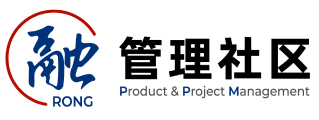软考系统规划管理师(核心考点):职业素养与法律法规
 323 2024-08-23
323 2024-08-23
我们非常重视原创文章,为尊重知识产权并避免潜在的版权问题,我们在此提供文章的摘要供您初步了解。如果您想要查阅更为详尽的内容,访问作者的公众号页面获取完整文章。
Chapter 12: Professional Quality and Legal Regulations Summary
The twelfth chapter covers the aspects of professional ethics, codes of conduct, and legal regulations pertaining to the IT service industry. The core content is divided into two main parts: professional quality and legal regulations.
Professional Quality
Professional ethics are the standards of behavior that practitioners should adhere to in their professional activities. They encompass eight main aspects, such as the recognition of professional norms, their long-term formation, and reliance on self-discipline. Codes of conduct further detail the professional responsibilities of practitioners and their responsibilities towards clients and the public.
Legal Regulations
The section on legal regulations includes basic legal concepts, the structure of China's legal system, statutes of limitations in litigation, and commonly used laws and regulations. Understanding the definitions of law in the narrow and broad sense, the seven legal departments and three levels of normative documents within China's legal system are key. Specific provisions of statutes of limitations and the core content of commonly used legal regulations (such as Contract Law, Bidding Law, Copyright Law, etc.) are also important examination points.
Professional Ethics
Professional ethics are a set of norms widely accepted by society, which have naturally formed over a long time, and are usually reflected in concepts, habits, beliefs without a fixed form. These ethics are mainly enforced through the self-discipline of employees and are more about moral constraints than legal ones. They are diverse and deeply rooted in corporate culture, impacting its cohesion and overall image.
Behavioral Codes
Behavioral codes specify professional responsibilities, including adhering to policies, reporting violations, disclosing conflicts of interest, providing accurate information, and respecting intellectual property rights. They also define responsibilities towards clients and the public, such as holding valid professional qualifications, achieving project goals, maintaining confidentiality, managing conflicts of interest, and rejecting improper benefits.
Legal Concepts
The law consists of normative documents established by state organs, divided into narrow and broad definitions. The narrow definition only includes normative documents made by legislative bodies, whereas the broad definition encompasses all legal documents, including administrative regulations for law enforcement.
Legal System
China's legal system revolves around the Constitution and laws, including administrative regulations and local regulations, formed by seven legal departments and three levels of legal norms.
Statutes of Limitations
Statutes of limitations refer to the legal time periods within which a rights holder must request judicial protection of their rights. Civil statutes of limitations generally allow two years from the knowledge of the infringement to file a lawsuit, with some special cases allowing shorter or longer periods. Criminal prosecution periods vary from five to twenty years, depending on the severity of the crime, with some crimes being prosecutable indefinitely upon approval.
Common Legal Regulations
Common legal regulations include Contract Law, Bidding Law, Copyright Law, Government Procurement Law, Labor Law, and Intellectual Property Law, all of which regulate various aspects of legal relations and rights within their scope.
Amendment VII to the Criminal Law
To address issues arising from the use of information technology to infringe on personal rights and disrupt economic order, Amendment VII to the Criminal Law was passed in 2009, introducing new offenses such as selling or illegally providing personal information of citizens.
Key Knowledge Points and Analysis
This chapter emphasizes the importance of comprehensively understanding each knowledge point, memorizing key provisions, and applying case analysis to grasp complex concepts and regulations. Specific attention should be given to the diversity of professional ethics, the application of statutes of limitations, and familiarity with common legal regulations relevant to the IT service industry.
想要了解更多内容?
关于我,阿里云ACE云计算架构师、华为云HCIP高级工程师认证。对售前开发运维实施均有了解,专注于软考相关知识、职业发展和个人成长等分享。欢迎一起交流学习,共同进步,持续精进~


白皮书上线








